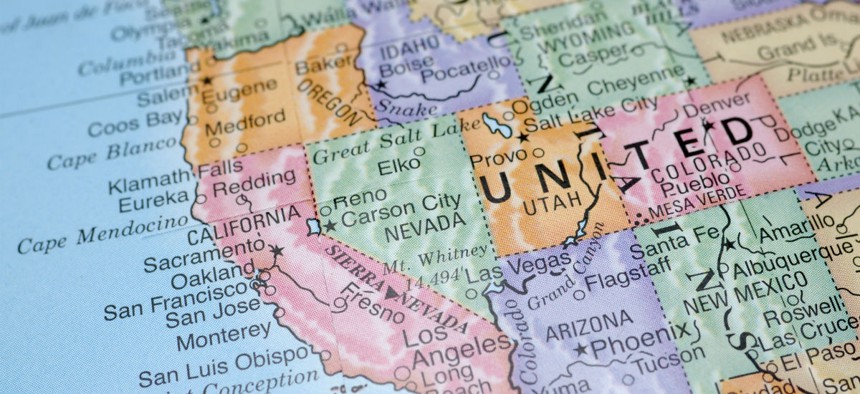Details on 2017 Locality Pay, a Surprise With the Military Raise, and More
A weekly roundup of pay and benefits news.
Federal employees are facing a lot of uncertainty during the presidential transition. But this week brought clarity to several shorter-term pay issues.
On Tuesday the Obama administration released details on locality pay rates for 2017. California’s Bay Area and the Washington, D.C., region will receive the biggest locality pay boosts next year. Bay Area feds will see their locality rate increase 1.32 percentage points from 35.75 percent in 2016 to 37.07 percent of their base salary for 2017. Those in the D.C. area will receive a 1.26 percent bump in 2017, from 24.78 percent of their base salary this year to 26.04 percent for next year.
The “rest of the U.S.” rate will increase next year to 14.74 percent from 14.35 percent in 2016. Click here for the full list of 2017 locality pay rates. The new rates will go into effect in the first pay period of the new year.
Locality pay is just one piece of the civilian raise. President Obama in August officially recommended an overall 1.6 percent pay boost in 2017 for civilian federal employees, composed of a 1 percent base increase and a 0.6 percent locality pay bump.
Military members were also in line for a 1.6 percent pay raise in 2017 under Obama’s recommendation, but on Tuesday, they received a pleasant surprise. Congressional aides announced that House-Senate negotiators on the National Defense Authorization Act had decided to go with a higher figure for the military pay raise that had been in the House version of the bill.
The NDAA conferees agreed to grant troops a 2.1 percent raise in 2017, which would be the biggest annual boost in six years. Of course Congress must still approve the final compromise version of the bill, and President Obama must sign it into law. The White House in May threatened to veto the House version of the NDAA, partly because of the 2.1 percent military pay raise.
The compromise Defense authorization bill contains another nugget of good news on defense pay and benefits. The act now contains language to address the California National Guard bonus debacle. The NDAA will not allow the Pentagon to claw back improper enlistment bonuses unless the soldier “knew or reasonably should have known” he or she was ineligible for the benefit, according to a summary from Rep. Darrell Issa, R-Calif.
The language would also require the Defense Department to take steps to ensure the snafu has not affected soldiers’ credit ratings, and to refund any repayments already collected unless the soldiers are guilty of fraud. Defense had asked about 2,000 of 10,000 guard members who received erroneous re-enlistment bonuses to repay them, before the effort to recoup the money was suspended in late October in response to outrage from lawmakers, service members and the veteran community.
“This is an important fix that ultimately does the right thing,” Issa said in a statement Wednesday. “It moves the burden of proof off the soldiers and onto the Department of Defense … and also helps to make sure those who already wrongly repaid their portion are made whole at once. After so many of our heroes have had their credit ruined, their life savings ransacked and their financial futures upturned in an effort to repay bonuses they accepted in good faith, this is an appropriate and necessary step to doing what’s right.”
In still more good news for the military and veteran community, the House on Tuesday unanimously passed the Veterans TRICARE Choice Act (H.R.5458), which allows veterans to suspend their TRICARE benefits if they wish to enroll in an employer’s health savings account (HSA). Current law prohibits TRICARE participants from participating in HSAs, even though they can be a cost-effective way of handling medical expenses and are increasingly popular in the private sector, according to the bill’s sponsors.
“The Veterans TRICARE Choice Act gives our veterans the ability to choose the best health care options for themselves and their families,” said Rep. Tulsi Gabbard, D-Hawaii, who sponsored the bill along with Rep. Chris Stewart, R-Utah.







